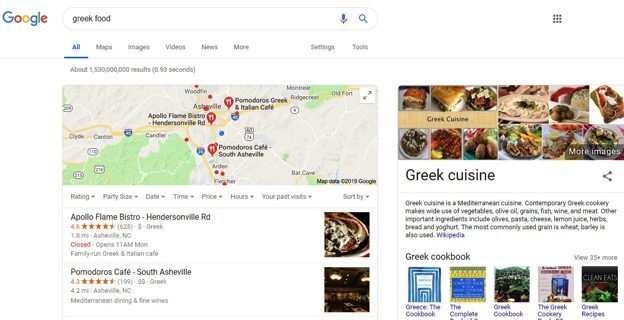A beginners’ guide to understanding search engine optimization (and why you need it).

You hear all about it, you’re pretty sure you need it, but do you actually know what it is and why it’s such a big deal?
We’re talking about search engine optimization (SEO).
Far too many website owners go through the time and expense of building a website, only to leave SEO off the table without realizing the immediate and long-term implications.
Even if much of your business comes through referrals, even if you’re not an e-commerce site, even if your website isn’t very big — optimizing your website is an integral part of your local business marketing plan.
In this article, we’ll cover the must-know aspects of search engine optimization and search engine marketing (SEM), including:
- What is SEO?
- Why Does My Website Need SEO?
- The 8 Pillars of Good SEO
- How to Get Started With SEO
What is SEO?
Search engine optimization — SEO for short — isn’t a single strategy or a one-time action.
Search engine optimization is a multi-faceted, ongoing strategy of making your website visible to search engines to drive traffic and generate leads.
With SEO, your website can be found by qualified potential customers. (Yay!)
Not considering SEO is the online equivalent of opening a business in a basement, not telling anyone where it’s located, not putting up a sign on the street and not advertising. (Booo!)
Why Does My Website Need SEO?
A January 2018 survey reported more than 1.8 billion websites in existence. With that much information available, how does a search engine seem to “magically” know exactly what you’re looking for when you perform a web search?
The answers are:
- Algorithms.
- Search engine optimization.
Search engines aim to give users the best possible experience by serving the most meaningful results from the most authoritative websites.
To do that, Google — the world's most popular search engine — uses incredibly intelligent, ever-evolving algorithms to analyze and rank web content.
From there, Google displays search results in order of what it believes to be the most helpful answer depending on the website’s authority, the wording of your search, your search history and personal data such as your physical location.
Let’s look at an example.
You pull out your phone, open up a mobile browser and search for “Greek food”. This is a broad search, so Google has to figure out your intent. Are you looking for:
- A Greek restaurant or market near you?
- Recipes for Greek food?
- Examples of typical Greek foods?
- The meaning of Greek food?
- An eCommerce website that ships imported Greek food?
In this example, Google will note that you’re on your mobile phone, which it can pinpoint to a particular location and gather personal data to determine that you’re most likely looking to dine out, and that you most likely need a map of nearby restaurants.
(And in case you’re not, Google will give you a Wikipedia snippet, links to Greek cookbooks and photos of Greek food, too).

While you can’t control how and when search engine algorithms are updated, you can control the quality and content of your own website to increase your website’s traffic, search rankings and sales leads.
That’s why your website needs search engine optimization.
The 8 Pillars of Good SEO
Many small business owners are surprised to learn that web design is only the beginning. Having a website doesn’t automatically mean people will find you online! We build out these key SEO strategies to help generate website traffic and leads.
- Mobile response and page speed
Is your website mobile-friendly/responsive? Does it load quickly for mobile searches? More than half of internet searches now take place on a mobile device (tablet or smartphone). Google has made it crystal clear: Mobile-ready websites are given preference in search rankings; non-responsive websites are penalized with lower search rankings.
- Backlinks
A backlink is a link to your website from another website. Google sees backlinks as a vote of confidence, a “thumbs-up” indicating your website is liked, respected and trustworthy. Getting favorable backlinks to your site is actually pretty difficult, especially because the quality of backlinks is much more important than quantity.
- Social media
Why does your business need social media? Because your social profiles often occupy some of the top search results. In addition, when your content is shared through social media, Google sees that as a sign of approval and bumps your rankings accordingly.
- On-page SEO
On-page SEO includes keyword targeting, page headings and content, blog articles, contact information, optimized images, and strategically laid-out design. Bad on-page SEO (called black hat SEO) can get your website penalized or even blacklisted.
- Maps and business listings
Search engine business listings like Google My Business and user-generated review sites (such as Trip Advisor and Yelp) play a big part in your online marketing. Maintaining these listings and managing user reviews play a key role in a digital marketing strategy.
- Security
Google gives preference to websites with an SSL certificate, an indicator of website authority and a secure user experience. (Read more on our blog post covering SSL certificates and why you need one.)
- Authority
Your website’s domain authority is determined by factors such as security, backlinks, quality of content (e.g., a blog with original writing), amount of traffic and the age of your domain.
- Analytics
What’s the use of SEO if you don’t track and analyze the results of your efforts? A successful digital marketing strategy must include Google Analytics and Google Search Console. These reports can help drive a targeted adword marketing campaign, too.
A web marketing strategy is especially important for local business because they are competing against national chains as well as other locally owned companies.
Related: An Essential SEO Checklist for Local Businesses
How to Get Started With SEO
Ongoing SEO can yield returns many times over your investment, helping you stand out from your competitors and attract more qualified customers. Due to its highly technical nature, it’s worth entrusting your SEO with an established web marketing company.
There’s a reason Integritive was voted the Best Design and Development Firm in WNC two years in a row — we know the local market. We use our expertise to build websites and create digital marketing plans for Asheville’s diverse businesses.
As a full-service web marketing company, we make it easy to get started with web design and development, SEO and internet marketing, logos and branding, and website ADA accessibility. Contact us to come by and chat about how we can help.




